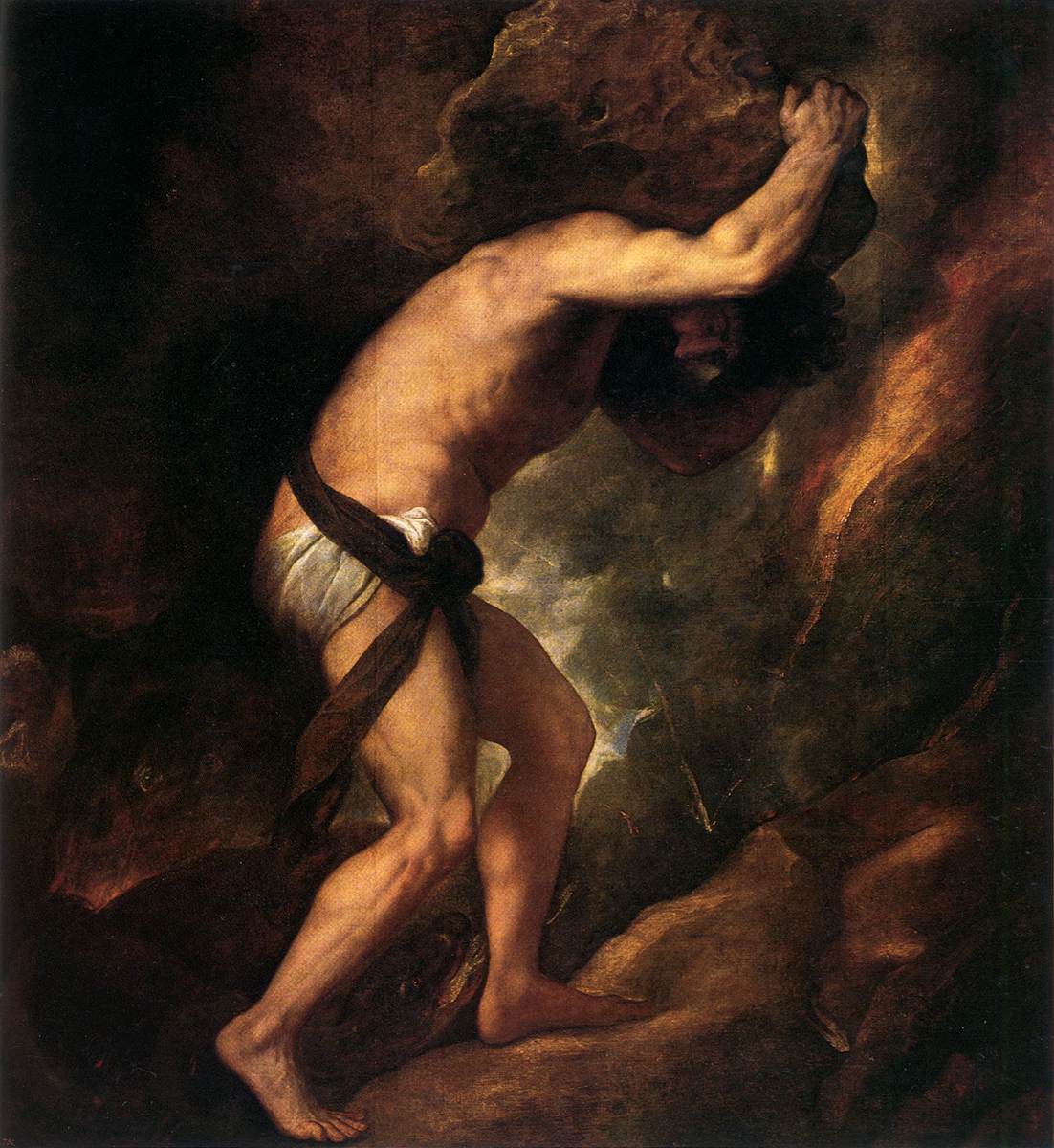 |
| Sisyphus by Titian |
In my second year of teaching Homer's epic poem, The Odyssey, a freshman asked me, "What did Sisyphus do to deserve his fate?"
I froze. Sixteen sets of eyes looked to me. I had never been the sage on the stage, yet I once knew the answer, but I had forgotten - confusing Sisyphus with Tityus and Tantalus.
(Click the links for the answers.)
So like any good teacher, I redirected the question.
"Hey, what are you doing, Mihir? Put your hands up."
Busted. His smartphone aglow on his lap.
I pride myself on catching students on their phones in class.
Sheepishly, a grin came across his face...
"I was just reading on Wikipedia. I was curious what Sisyphus had done."
"You don't know the answer" was the unspoken remark that everyone heard.
His hands were still held up. So I relented.
"Well, what did Sisyphus do?"
And he read us the definition and we moved on - enlightened.
In the moment, I laughed at myself, yet I never forgot that question.
Kids by nature are curious, but the way we play the game of school crushes that curiosity. We say...
Read the book.
Think for yourself. Come up with your own ideas.
Don't use the internet.
But why are we pushing our own boulder up the hill in teaching?
We still pretend the internet does not exist in the English classroom.
When we talk of integrity and say don't use the internet, we are not living in the reality of 2014.
We are wired to Google it as teachers - yet we tell our students - you can't do the same. We know the word for that and teenagers are keen to it - hypocrisy.
After I surf the web to answer a question, I am smarter from the experience. I've made connections with the text.
I understand references, vocabulary, biography, and history.
I've learned (and here I am writing and sharing what I've learned, so I don't forget).
We demonize online reading aids because they summarize the plot and analyze passages for students (and alas, not that well). We think that they ruin the reading experience - they are spoilers.
Yet we forget that only in a second reading can we see the significant details of foreshadowing and symbolism and start to see thematic through-lines.
We forget how busy our students are and they pressure they are under to do it all.
But we play a game, a charade of control, and we want to see who's innately intelligent, anticipating what comes next in the novel.
So we tend test and quiz on plot - but we call it close reading.
As teachers, we even read Spark Notes so that we make sure not to use passages or questions that can be answered by just reading Spark Notes, so we devolve into a world of double think and suspicion of our students, and downright anger that the internet exists.
Let's end the gotcha quizzes that keep kids honest - the irony.
That's not teaching. That's testing and grading - in a game that has no integrity or true learning.
I'm tired of pushing the boulder up the hill.
Then again...
Excerpt from Book 11 of The Odyssey
from MIT's downloadable Trans. by Samuel Butler
"After him I saw huge Orion in a meadow full of asphodel driving the ghosts of the wild beasts that he had killed upon the mountains, and he had a great bronze club in his hand, unbreakable for ever and ever.
"And I saw Tityus son of Gaia stretched upon the plain and covering some nine acres of ground. Two vultures on either side of him were digging their beaks into his liver, and he kept on trying to beat them off with his hands, but could not; for he had violated Jove's mistress Leto as she was going through Panopeus on her way to Pytho.
"I saw also the dreadful fate of Tantalus, who stood in a lake that reached his chin; he was dying to quench his thirst, but could never reach the water, for whenever the poor creature stooped to drink, it dried up and vanished, so that there was nothing but dry ground- parched by the spite of heaven. There were tall trees, moreover, that shed their fruit over his head- pears, pomegranates, apples, sweet figs and juicy olives,but whenever the poor creature stretched out his hand to take some, the wind tossed the branches back again to the clouds.
"And I saw Sisyphus at his endless task raising his prodigious stone with both his hands. With hands and feet he' tried to roll it up to the top of the hill, but always, just before he could roll it over on to the other side, its weight would be too much for him, and the pitiless stone would come thundering down again on to the plain. Then he would begin trying to push it up hill again, and the sweat ran off him and the steam rose after him.
Interesting name: Artist Franz von Stuck 1920 painting of Sisyphus
